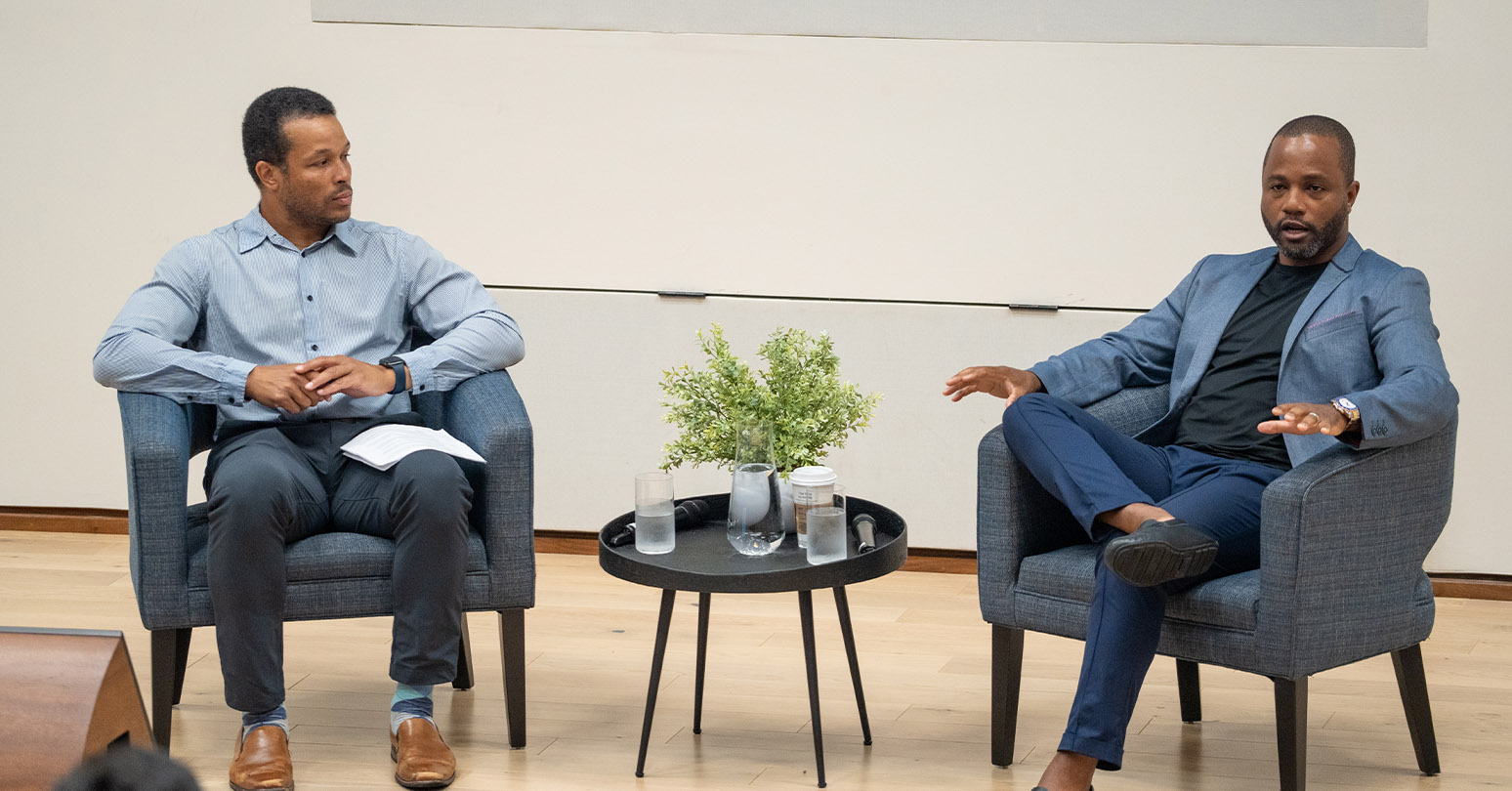If there is one piece of advice Isaac Olowolafe Jr. can offer – and model for – the next generation of leaders, it is to dream big.
After all, the award-winning real estate entrepreneur, angel investor, and philanthropist has made his mark by repeatedly chasing lofty dreams with well-crafted action plans and unwavering commitment. Whether it was buying his first real estate property at age 21 by working night shifts while at university, or providing resources for underrepresented entrepreneurs by creating a Black investor-led venture capital fund, Olowolafe Jr.’s tenacity and determination has paved his way to success.
“I think the biggest thing to learn is to just be deliberate in wanting to see change,” Olowolafe Jr. told students at the recent Ivey MBA Leadership Day hosted by the Ian O. Ihnatowycz Institute for Leadership.
Olowolafe Jr. was the keynote speaker for the day, which is dedicated to the students’ leadership development, and shared highlights of his journey to create opportunities for underrepresented leaders in a discussion moderated by Ivey professor Hayden Woodley. The day also included mini-case classes and a leadership panel discussion.
Combining profit with purpose
Olowolafe Jr. discussed how he has combined a business and social mission in all of his endeavours, emphasizing to the students that profit can extend beyond making money to include creating psychological or social benefits.
Originally from Nigeria, Olowolafe Jr. spent most of his life in Woodbridge, Ont. after his family immigrated to Canada when he was four. While growing up in Woodbridge and attending the University of Toronto, Olowolafe Jr. said he noticed gaps for underrepresented groups in three areas – institutional relationships, home ownership, and business ownership – which can limit their opportunities. He has since been focused on addressing these gaps.
In addition to founding a real estate development business and a venture capital firm – both aptly named Dream Maker – Olowolafe Jr. created BKR Capital, the first Canadian venture firm that invests in underrepresented founders in the technology space, and established the first endowment for African Studies at the University of Toronto. He is also behind numerous other initiatives aimed at creating generational wealth and better lives for underrepresented groups, including a business incubator for Black entrepreneurs, expanding youth access to training in trade skills, and a fellowship for research on sickle cell disease.
“Basically, what we’ve been doing is going to different institutions, seeing where there are gaps, and seeing how we can leverage the infrastructure that they have to create initiatives that have sustainability,” he said. “The strategy we take is to not push it, but rather, how do we collaborate, integrate, and show the benefits?”
Focus on the why
Noting that he often had to step out of his comfort zone and sometimes felt like he was “on the battlefield,” Olowolafe Jr. said relationship-building, and focusing on why the change is needed, is key to his success.
“Once you build that relationship and you build trust, it’s now sharing ‘Hey, by the way, in this space, these are the gaps we’re seeing and this is how we can collectively work together to fix that gap’,” he said. “You have to understand how to make the why big enough and accept that there will be a lot of struggles to get to the wins. Throughout the last 20 years, there have been a lot of difficulties and a lot of lessons learned. There have been a lot of ‘Nos’ – thousands of ‘Nos’ – before the first ‘Yes’.”
Addressing inequity with equity
Using an approach that Woodley described as “using equity to address inequity,” Olowolafe Jr. also discussed the importance of ensuring there is diversity in decision-making bodies and that everyone is patient because bringing about lasting chance takes time. Both are important insights for any future leaders aiming to build equity in their organizations or lead with inclusion.
“I think that institutions that are looking to make quick results on something that has been lacking for decades or centuries – it doesn’t work,” he said. “To make change, it takes resources and it takes sacrifices from both parties – those who want the change and those who are asking for change. Everything that is being built from scratch and is trying to be there for longevity is going to take time.”

L-r: Hayden Woodley and Isaac Olowolafe Jr.



